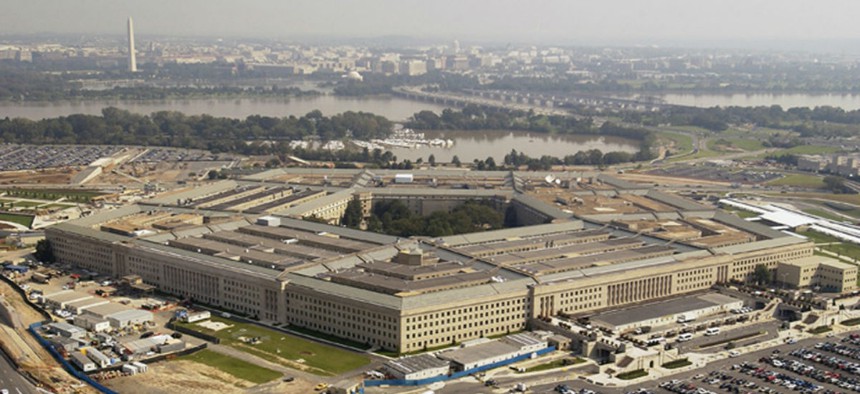
Defense Department file photo
Senate Takes Up Defense Authorization Bill, House Works on Defense Spending
The week will be headlined by the fight over amendments on the Pentagon authorization bill.
The Senate could wrap up its work on the National Defense Authorization Act by the end of this week if the managers of the bill continue to plow through as many amendments as possible, as they promised last week. Before that happens, there could be votes on subjects as diverse as closing the Guantanamo Bay detention center and treating service members and veterans with Alzheimer's disease.
Majority Leader Mitch McConnell has said he wants the NDAA floor debate to wrap up by the end of the week, which he hopes could happen with consent from both Republicans and Democrats. But that means they will need to agree on when enough is enough on individual amendments. The NDAA is a perennial target for amendments in the Senate because it is viewed as the only bill that usually makes it all the way through the process.
So far, the amending process has gone smoothly, with lawmakers disposing of about a dozen amendment proposals last week in two days of debate. But the real fireworks on defense have yet to come. On tap is a critical amendment from Democrats that will seek to raise some $40 billion in domestic spending to match the emergency war funds for the Pentagon in the bill. The amendment goes to the core of the Democratic message this year that budget caps put in place to avert a fiscal cliff three years ago are damaging the country economically and strategically. If it fails—which is likely, given Republicans' disdain for it—it isn't clear how many Democrats will vote for the final bill.
On the right, former Armed Services Committee Chairman Jim Inhofe has filed an amendment that would prevent the Pentagon from transferring Guantanamo detainees onto U.S. soil. The bill lays out a process by which the president can transfer detainees to high-security U.S. prisons without granting them all of the rights that U.S. prisoners typically have. Congress would have to approve of any such plan before it could be carried out.
Inhofe's amendment to stop that process is surprising, considering he supported the defense bill in committee and presumably was part of the negotiations on Guantanamo Bay. But, like many Republicans, Inhofe is upset with President Obama's release of some detainees and feels that the bill's language makes it easier for that behavior to continue. "Senator Inhofe believes the language in the bill will allow the president to be able to continue emptying Gitmo and take us one step closer to closing the facility. Since we are in a time of war, he would prefer the language prohibit the transfer or release of individuals detained at Gitmo. Period," said Donelle Harder, a spokeswoman for Inhofe, in an email.
The House, meanwhile, has spending bills on tap. Members will finish a lengthy debate on funding the transportation and housing agencies, the biggest non-defense appropriations bill on its list. Up after that is the Defense Department's appropriations bill, which gives the Pentagon its spending money for the next fiscal year. Expect yet another fight from Democrats on sidestepping the mandatory budget caps.
House members will also consider bills to reauthorize the Commodity Futures Trading Commission, the regulatory agency charged with overseeing the derivatives market, and to roll back an Agriculture Department rule on labeling meat by its country of origin.
WHITE HOUSE
President Obama begins his week in Germany at the meeting of the G-7 nations before returning home Monday evening to spend the rest of the week in Washington.
Obama actually began his work week Sunday, with a full day of meetings with leaders of other major economic powers. The agenda in a resort near Munich includes a session on energy and climate as well as one on terrorism. Iraqi Prime Minister Haider al-Abadi also is attending that meeting as the world leaders discuss the ongoing battle against the self-described Islamic State.
Obama is scheduled to fly back to the United States late Monday, and on Tuesday will attend the Catholic Health Assembly conference in Washington and deliver remarks about his signature health care law.
The president has no public events planned for the remainder of the week, although he is to headline a Democratic National Committee fundraiser in Washington on Thursday.
Visit National Journal to read more about Congress' agenda this week.
Jason Plautz, Caitlin Owens, Brendan Sasso, and S.V. Dáte contributed to this article.






